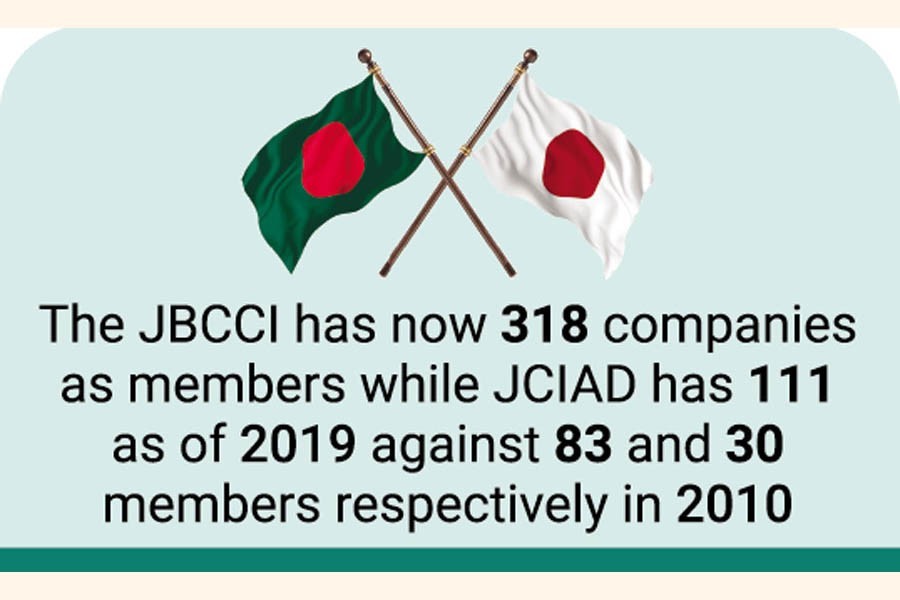The interest of Japanese companies and joint ventures in Bangladesh has grown steadily in the past decade with their increased footprint.
The Japan Bangladesh Chamber of Commerce and Industry (JBCCI) and the Japanese Commerce and Industry Association in Dhaka (JCIAD) have now members more than three times they had in 2010.
According to the Japan External Trade Organisation (JETRO), the JBCCI has shown an average increase trend of members every year since 2010.
But the chamber got the highest 40 firms in 2014.
The JCIAD, the association for only Japanese firms, also saw the arrival of 14 and 17 companies in 2011 and 2015 against the average yearly trend of five to six.
The JBCCI has now 318 companies as members while JCIAD has 111 as of 2019 against 83 and 30 members respectively in 2010.
"Bangladesh has experienced two waves of the arrival of Japanese-origin companies and joint ventures since 2008. The third wave also started experiencing before coronavirus situation," says JETRO country representative Yuji Ando.
These Japanese companies are engaged in ready-made garments, trading, development projects, service sector and private investment, he adds.
Mr Ando, however, tells the FE that the third wave is likely after the improvement of the Covid-19 situation.
Twenty-nine JCIAD-affiliated firms have invested in garments, 28 in uplift projects, 13 in manufacturing and 19 in the service sector and domestic market.
The JCIAD was born in 1972 and the JBCCI in 2004 with the rise of joint ventures or companies having business interests with Japan.
With the coming of Uniqlo in Bangladesh in 2008, the first wave of Japanese companies was witnessed until 2011 in line with trading and services like inspection.
The second wave began in 2014 after the Japanese premier's tour of Bangladesh and a commitment of $6.0-billion economic cooperation.
Before the pandemic, Mr Ando says, all types of Japanese companies visited Bangladesh to see the investment situation here and still they are querying those as part of their interest.
"I think after corona, the third wave will be visible," he told the FE over the phone, indicating the readiness of the Japanese economic zone at Araihazar by 2022.
Mr Ando, however, says despite travel restrictions, many interested companies continue queries and hold online meetings to know about the updated situation.
The JETRO's annual survey 2019 also shows 70-per cent of Japanese companies working in the country plan for expansion in the next two years.
Meanwhile, an effort has been made to have a free trade agreement (FTA) between Bangladesh and Japan reflecting a pro-business environment.
The JBCCI along with the government has started a survey on the FTA to understand the demand from companies and guide two governments in signing the deal in future.


